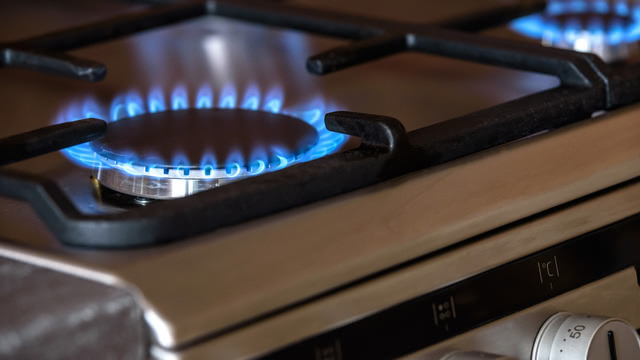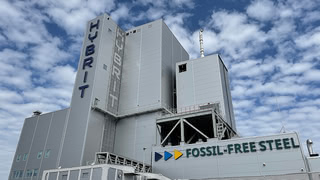Gas Stoves and Gas Grids
Cooking with gas represents only a tiny fraction of overall gas use. Some say it does not matter much for the climate, but is that true?

A recently published study investigating the connection between gas stoves and asthma cases has sparked a debate in the United States. The discussion was sparked by a quote from a US Consumer Product Safety Commission member who indicated that gas stoves might be banned. While it is unlikely that gas stoves will be banned in the US anytime soon, a heated debate followed.
Gas stoves emit NO₂ and other pollutants known to cause health problems, and modern electric induction stoves provide a safer and more efficient alternative. But a question some people raised is whether gas stoves matter much for the climate.
According to data from the Energy Information Administration (EIA), gas stoves are responsible for less than three percent of household gas use in the United States. And that is only 15 percent of overall gas consumption in the US. The rest is in industry and power plants.
Gas stoves also leak Methane
Gas stoves not only emit carbon dioxide from the gas burned. they can also leak methane - the main component of fossil gas. Methane is a greenhouse gas much more potent than carbon dioxide.
But even considering methane leaks, it is likely that cooking with gas is only a minor contributor to climate change. So why bother? The small quantities of gas needed for cooking might even be provided by green sources like biogas or e-methane made with green electricity. But we cannot look at gas stoves in isolation.
The primary usage of gas in households is for space and water heating. And this is a much more significant climate issue. The most promising option to replace gas boilers here is to replace them with heat pumps or, depending on the location and the availability of other heat sources, with residential heat grids.
Let's imagine for a moment a scenario in which we ignore the adverse health effects of gas stoves. Could people keep their gas stoves while gas boilers for heating are removed due to their climate impact?
A Gas Grid just for Gas Stoves is implausible
That is hardly plausible. Residential gas grids – the pipes that deliver gas into homes and the supporting infrastructure – have significant costs. Keeping a gas grid operational while delivering only a tiny fraction of the gas volume makes little sense and would mean enormous costs for a few gas stove lovers.
This is likely also why the gas industry uses the topic of gas stoves to push back against policies to electrify buildings. Gas stoves can only stay as long as households continue to use fossil gas - for more than just cooking.
And this is why gas stoves will have to go anyway. They will lack the gas supply infrastructure in a scenario where fossil gas use for heating and warm water is drastically reduced. And this has to happen if fossil fuel use is reduced and eventually phased out.
Interestingly in many European countries, a completely different debate with the same background is happening: Whether or not to use clean hydrogen for heating. I covered this in an earlier newsletter.
Many European gas companies and lobbying organizations push the idea that gas grids could be converted to deliver hydrogen. While converting some parts of the gas transmission grid for hydrogen may make sense, it is implausible that hydrogen will be used for heating in any meaningful quantities. It is too inefficient compared to heat pumps.
And if you wonder if we might be using hydrogen for cooking: That is also very unlikely. Burning hydrogen creates even more NO₂ than burning fossil gas. It also burns with an almost invisible flame, which makes cooking with hydrogen a safety risk.
Whether the "culture war" around gas stoves or the question of hydrogen heating – both are just aspects of a much larger issue: Whether and how fast fossil gas grids will be dismantled.
Author: Hanno Böck
Elsewhere
Green ammonia and green methanol are considered promising options to decarbonize shipping. For Fathom World, I wrote about the pros and cons of both.
Brief
-
Heidelberg Materials announced plans for a carbon capture unit at a Belgian cement plant with a capture rate of 97 percent, though without a timeframe or details about the use of the captured carbon dioxide.
-
The shipping company Maersk will invest in the green methanol startup Carbon One from Berlin. Carbon One wants to improve the process that generates methanol from carbon dioxide and hydrogen.
-
Mining company LKAB identified a large deposit of rare earth elements close to its existing iron ore mine in Kiruna, Sweden. Rare earth elements are used in many electronic devices. They are considered a crucial resource for electrification and decarbonization efforts.
-
The Canadian company Hydrostor plans to build a compressed air storage facility with a storage capacity of 1,600 Megawatt in California.
-
The Norwegian startup Blastr wants to build a green steel plant and green hydrogen facility in Inkoo, Finland.
-
In Greenland, H2Carrier AS and Anori A/S plan to build a green ammonia plant powered by wind energy. The technology by H2Carrier called P2XFloater is a concept to produce green ammonia on a ship.
-
Danish company Continuum wants to recycle wind turbine blades and plans to have the first recycling facility in the town of Esbjerg operational by 2024.
-
The think tank Renewable Energy Institute published a report about Japan's hydrogen strategy. It criticizes the use of hydrogen in low priority applications like fuel cell vehicles, and the use of hydrogen made from fossil fuels.
-
A study by the EU project Europe's Rail has analyzed the possibility of a high-speed rail network connecting European cities.
-
Swedish company Liquid Wind announced the construction of an electrofuel facility in Umeå, Sweden, its third project. Liquid Wind already plans two e-methanol facilities. The announcement for the facility in Umeå does not mention what type of fuel will be produced there. Liquid Wind plans to use carbon dioxide from the nearby Dåva waste-to-energy plant.
-
BP has announced plans to build an Ammonia Cracker in the port of Wilhelmshaven, Germany. I already mentioned in the last newsletter that the Port of Rotterdam also plans the construction of an Ammonia Cracker. I will cover this in more detail in one of the next newsletters.



